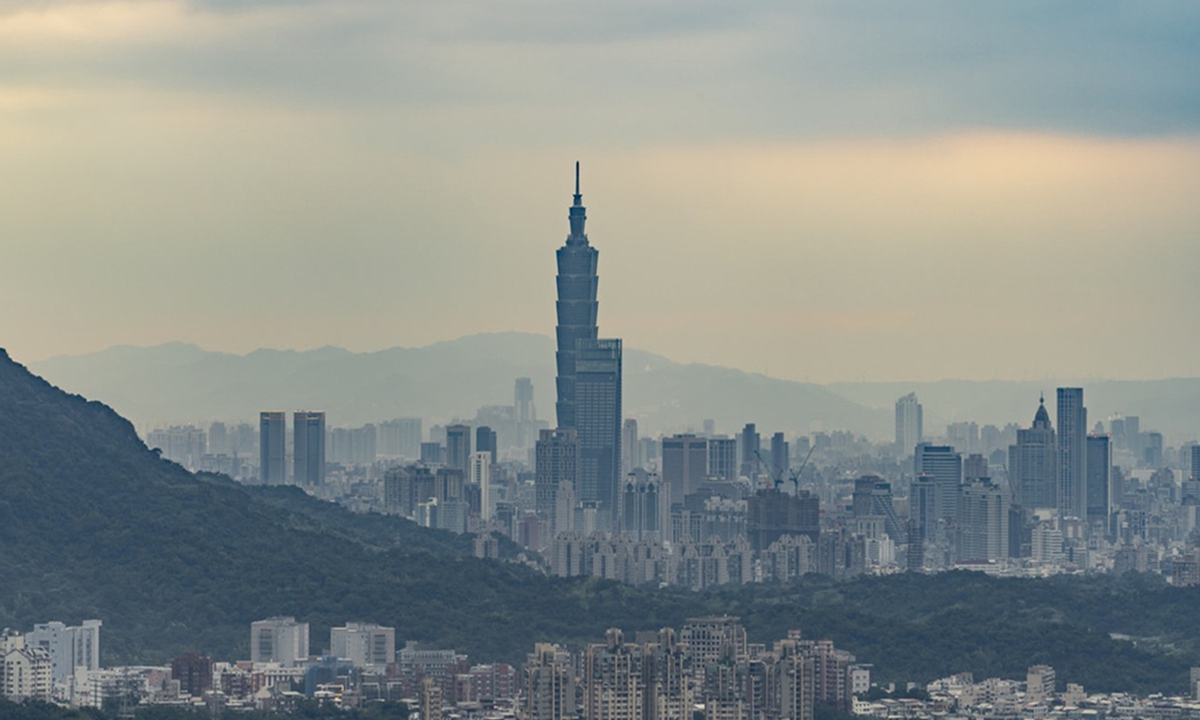(Source:Global Times,2024-01-22)

A view of the Taipei city, Taiwan island Photo: Unsplash
Embracing the One-China principle is the general trend of the times and the inevitable choice of the international community, Chinese experts said on Monday, after a Tuvalu envoy's recent remarks that the Pacific island country may follow Nauru's decision to sever ties with the island of Taiwan.
According to a report published on January 19 by the Weekend Australian, Tuvalu's representative to the island of Taiwan said a source told him that Tuvalu could cut ties with Taiwan after the Pacific nation's election on January 26.
The Tuvalu envoy's remarks came after Nauru, another Pacific Island nation, announced it was severing diplomatic ties with Taiwan on January 15, on the heels of the secessionist Democratic Progressive Party (DPP)'s Lai Ching-te's victory in the regional leader election in the island on January 13 this year.
On Sunday, Taiwan's external affairs authority claimed that it maintains deep ties with Tuvalu, according to reports from Taiwan-based media. The department also noted that despite Nauru's decision, the Marshall Islands, Tuvalu and Palau all pledged to stick with Taiwan.
Zhang Wensheng, deputy dean of the Taiwan Research Institute at Xiamen University, told the Global Times on Monday that the Taiwan authorities' reaction is nothing more than an effort to embolden themselves, or it shows that they are still making a last-ditch effort to hold on to Tuvalu.
Analysts noted that regardless of whether Tuvalu severs its ties with the Taiwan in the short term, the trend of the international community further distancing itself from DPP authorities show that accepting the One-China principle is the general trend of the times and the inevitable choice of the international community.
Lai's election victory further amplified the geopolitical risks posed by Taiwan secessionists, which in turn has made it increasingly difficult for the DPP authorities to establish themselves internationally, Zhang said.
There are currently only 12 UN-recognized nations that retain ties with Taiwan authorities. According to Zhang, it cannot be ruled out that the number of Taiwan's diplomatic partners could fall into the single digit during Lai's tenure.
According toXin Qiang, deputy director of the Center for American Studies at Fudan University, Tuvalu may just be the second domino in the chain.
The Chinese mainland will not be soft in containing Taiwan secessionists, said Xin, the mainland's influence on international affairs, and its importance to other countries, is far greater than that of Taiwan island.
According to data from Taiwan's international trade department, the total trade volume between Tuvalu and Taiwan authorities in 2023 was only about $1.81 million.
The Pacific Island countries (PICs) actually lack close economic ties with Taiwan region as ballast for solid ties. At the same time, the financial resources, which the Taiwan authorities use to serve their dollar diplomacy, have been waning in recent years, Zhang said.
The PICs have been facing the negative effects of global warming and rising waters in the Pacific Ocean in recent years, putting the countries' survival under threat, said Zhang, In terms of the construction of infrastructures and coping with climate change, PICs are even more in need of, and more hopeful of, cooperating with Beijing.
The DPP authorities are relying more on US and Australian efforts in pressing PICs to maintain diplomatic ties with Taiwan, but the vast majority of its handful of allies recognize their true national interests, which makes the trend [of cutting ties with the island of Taiwan] unstoppable, Xin told the Global Times.



